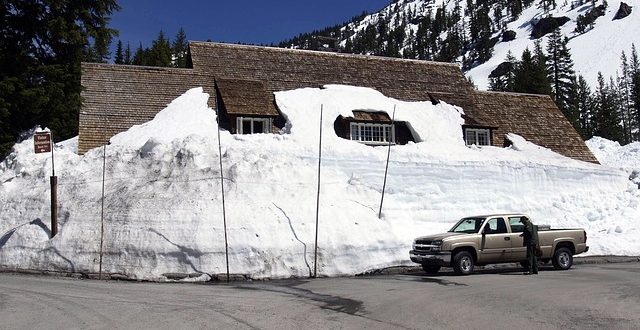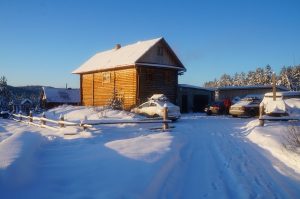With winter right around the corner, it’s important that you prepare your house for winter. From inspecting the exterior of your home to checking your plumbing, as well as changing over smoke detector batteries. There’s plenty for you to do to prepare for the upcoming cold weather. Follow our winter home maintenance tips to get started on basic winter home preparation.
Inspect the Exterior
When preparing your house for winter weather, you should start by checking the outside of your home. Inspect for cracks or peeling paint along the exterior of your home. It’s also wise to check your windowsills to make sure they’re in good condition. As well as check your roof for any broken or missing tiles or shingles.
The most important areas of the exterior of your home are the gutters and downspouts. You should keep an eye on your downspouts during a rainstorm. Make sure they’re properly diverting water away from your home. If they don’t function right, you could be looking at drainage problems. This can cause water damage to your home. Not to mention, it can also lead to ice dams and roof problems in cold weather.
Be sure to drain and store your hoses as well. You should completely turn off your sprinkler system and close your pool. Wait for a warm day to cover patio furniture. This is to prevent trapping moisture under the tarp and onto your furniture. If you don’t, it may cause bacteria and mold to grow.
Inspect the Interior
If you have air-conditioning units in the windows of your home, remove them and store in your garage or basement until the following summer. You should also switch your screens to storm windows for winter protection. It’s also important to add weather stripping or caulk anywhere in your home where there are cracks. This is to prevent drafts from seeping in.
You should also remember to check your smoke and Carbon Monoxide detectors. According to the United States Fire Administration, three out of five homes suffer from fire due to broken smoke detectors. This is why it’s important to regularly change the batteries, as well as test them to make sure that they are all working.
Check Your Heating System
Before winter arrives, it’s important that you check on your heating system. It’s never a bad idea to double check that it’s working correctly. You should be sure to contact a plumber to prepare either your furnace or boiler for the upcoming winter months. No matter who you hire, they should clean, test, and perform maintenance on your heating equipment.
Check Your Plumbing
The last thing you need this winter is frozen pipes. You should drain any outdoor water faucets and shut them off before winter kicks in. On cold nights, open the cabinets below your sink to let warm air in and lower the risk of your pipes freezing. You should also make sure your thermostat is set to a warm temperature. You don’t want a house that’s so cold your pipes will end up freezing.
Prepare for the Worst
In Reno, it can be cold and snowy during the winter. It is crucial that you are prepared for this type of weather. If you have a snowblower, make sure that it is working correctly. If it isn’t, get it serviced and repaired before the first snowfall. If you want to buy a snowblower, this is the best time of year to do so.
You will also want to stock up on snowmelt or sand. You should make sure your shovels are in good, working condition and keep them in an easily-accessible location. You will be thankful that you did this once the first snow falls. Also, update your emergency supply kit with working flashlights, new batteries, a complete first aid kit, food, water, and a portable radio. Perform portable generator maintenance, if you have one. For portable generator repair service, be sure to contact us sooner rather than later.
Although there’s plenty to do to prepare your house for winter, the steps we share are basic enough to do over a week. With the help of our winter preparation checklist, you can better protect your home for the winter to come. As well as avoid costly repairs that come with the cold weather.























